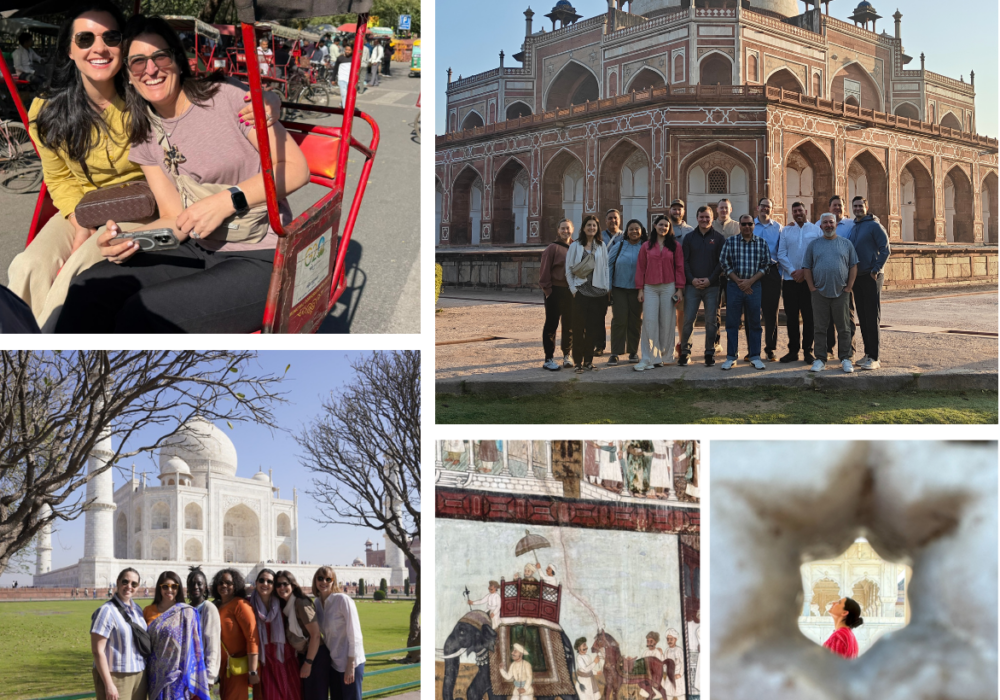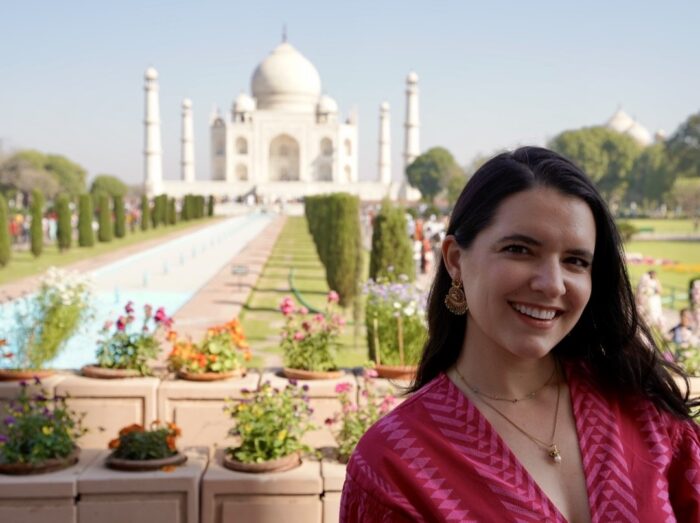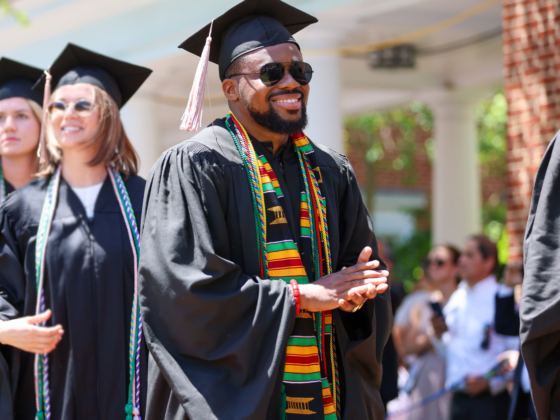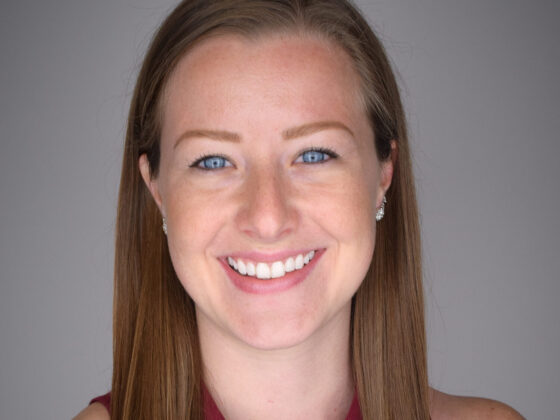Sarah Abogabir, a member of the Darden EMBA Class of 2026, currently works at Microsoft as a Customer Success Account Manager specializing in the financial services industry with a focus on insurance clients. In her role, she helps customers maximize the value of their Microsoft investments by driving adoption, removing barriers and aligning technology solutions with strategic business goals. Originally from Santiago, Chile, she is proud to be the first woman in her family to earn a master’s degree and pursue an MBA. Most recently, Sarah shared reflections from her Global Residency course in India, where she explored firsthand the intersection of culture, business and leadership in one of the world’s most dynamic economies.
What is life if we don’t share the experiences that shape us?
India taught me lessons no classroom ever could. This wasn’t just a journey across continents — it was a journey inward.
In a place where everything felt unfamiliar, I found clarity about what truly matters. I left with a deeper appreciation for the people of India and a sharper understanding of how cultural and societal dynamics influence business environments. Most importantly, I returned with a renewed commitment to lead with humility and purpose.
This experience was part of my Executive MBA at University of Virginia Darden School of Business — a chance to bring our case studies and classroom insights into real-world business conversations across one of the most complex and fascinating economies in the world.
One of my lifelong dreams is to visit every UNESCO World Heritage site — I’ve seen about 40 so far, and India alone has 38. If you ask anyone who knows me, they’ll tell you that my favorite feeling in the world is stepping into the unknown.
I first felt it as a child growing up in Chile, wandering through the markets of downtown Santiago with my father, who ran a small business. I felt it again years later in Cambodia and Thailand. There’s something magical about stepping off a plane, having your senses recalibrate, and knowing a new experience is about to broaden your perspective. India brought that feeling back — and with it, the kind of reflection that only comes from full immersion in a different world.
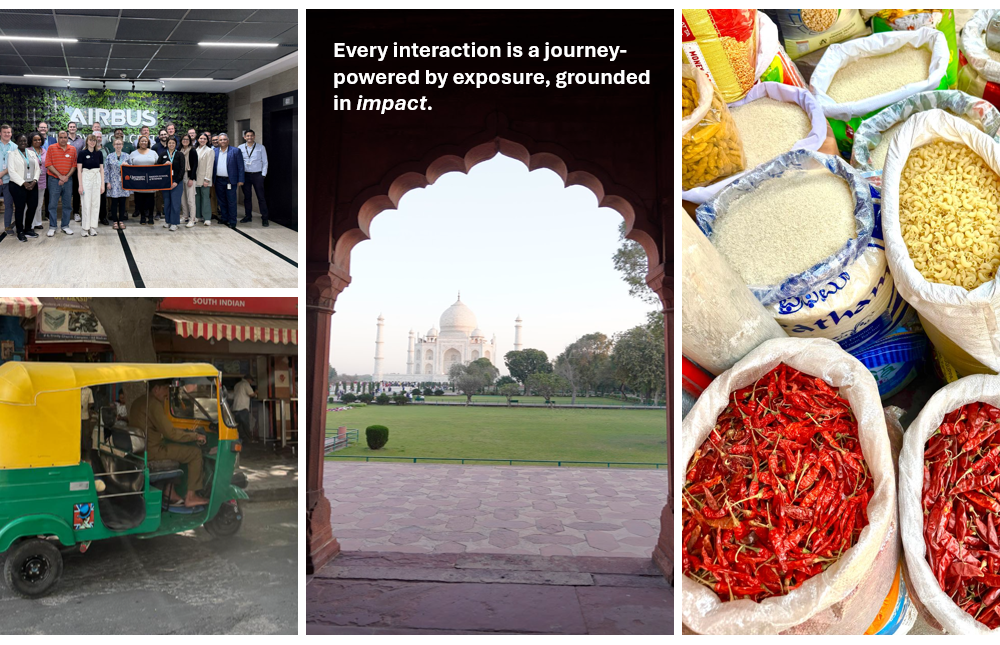
India is a country of contrasts.
From buzzing street markets to high-tech innovation hubs, we witnessed the powerful intersection of tradition, religion and modern business. We visited organizations across sectors — from Flipkart and Oberoi Hotels and Resorts to a small spice shop in Old Delhi and the U.S.-India Strategic Partnership Forum. Each one offered a unique window into how businesses operate within this massive and incredibly diverse market.
With over 1.4 billion people, 22 official languages and dozens of states, India isn’t just one market — it’s many. What amazed me was how businesses adapt to this complexity. Whether tailoring offerings by region, navigating different regulatory environments, or designing tech that works across languages, companies there are constantly innovating to keep up.
Nearly 40% of India’s population is under 25, making it one of the youngest major economies — and one of the fastest-growing. By 2027, India is expected to surpass Japan and Germany to become the world’s third-largest economy, behind only the U.S. and China.
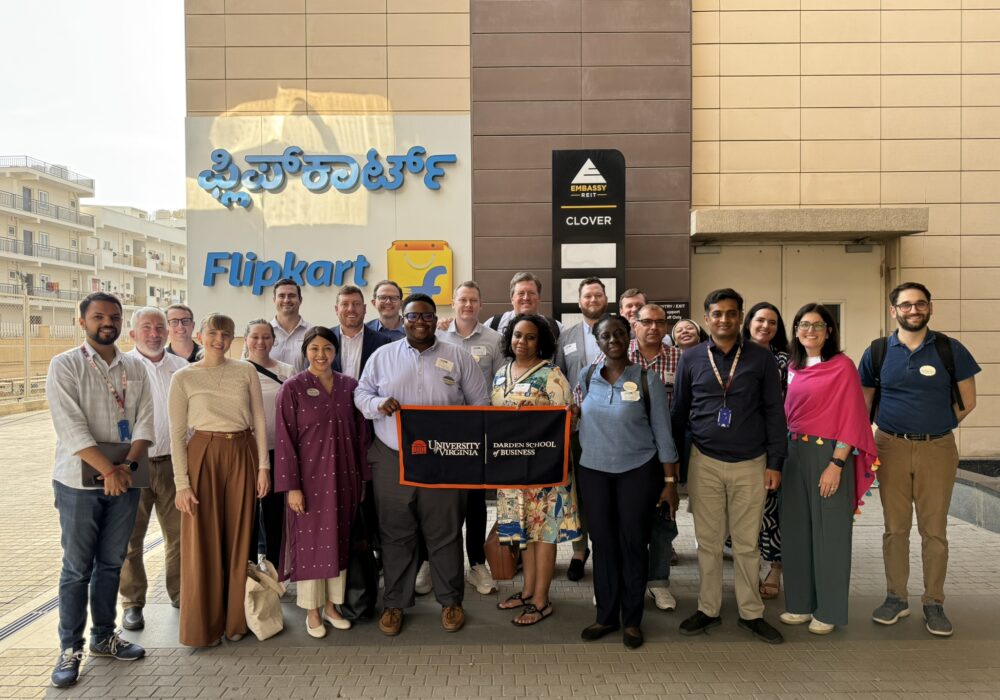
India is more than an emerging market — it’s a glimpse into the future of global business.
But while India impressed me with its innovation, it also challenged me in ways I didn’t expect. I saw families living under tarps and children barefoot in the streets. We had conversations about caste, inequality and the realities of social mobility — hard truths that forced me to sit with discomfort and complexity.
These experiences challenged what I thought I knew about global development and reminded me of the privilege I carry and the responsibility that comes with it. It’s one thing to understand inequality intellectually; it’s another to walk past it, to meet someone your age living a life unimaginably different from your own.
I was trying to make sense of it all, and I think this course helped me realize something important: sometimes it takes stepping into a completely different world to begin questioning the one you’ve built for yourself. It deepened my gratitude and sharpened my sense of responsibility.
There were moments — quiet ones — when I found myself reflecting deeply on my own career path, choices and values. I kept returning to the same questions: What am I hoping to leave behind? How will I be of service to others?
During my time at Darden, one of my professors, Sean Martin, mentioned something that resonated deeply with me: “Businesses are the most powerful institutions on the planet. You can utilize your institution as a vehicle to drive greater good.”
This course reminded me that leadership is about more than performance — it’s about service and impact.
